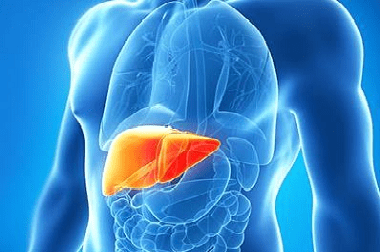Digestive system >>>> Autoimmune liver disease
Autoimmune liver disease.

Liver pathologies associated with abnormal responses of the immune system (autoimmune) have long attracted the interest of scientists. There is a generally accepted opinion about the mechanism of the occurrence of autoimmune reactions, which is based on the reaction of the immune system to its own autoantibodies of organs and tissues, while normally these autoantibodies are involved in reparative processes, stimulating tissue regeneration.
One of the most common theories in the field of the origin of autoimmune liver diseases associates autoimmune reactions with the viral infection that initiates them. But there is an opinion and the opposite, based on which it is assumed that viral infections have the opposite effect. But in any case, most scientists in this field agree that inflammatory processes in the liver are initiated by a very powerful stimulus, possibly of unknown origin.
By autoimmune hepatic diseases include several diseases:
- Autoimmune hepatitis, in which the liver parenchyma is affected;
- Primary biliary cirrhosis, in which the intrahepatic bile ducts are destroyed;
- Primary sclerosing cholangitis, in which there is an obliteration (closure of the lumen) of the extrahepatic and intrahepatic bile ducts with fibrous tissue (connective);
- Autoimmune cholangitis, which combines the features of autoimmune hepatitis and primary biliary cirrhosis.
The largest number of cases of autoimmune liver diseases, collected as a result of statistical studies, falls on the female sex (more than 80%). In many cases, autoimmune liver disease is attributed to a genetic predisposition.
Signs of Autoimmune Liver Disease:
- The clinic is similar to acute hepatitis;
- There is an asymptomatic course of the disease;
- Heaviness on the right in the hypochondrium;
- Violation of general well-being;
- An enlarged spleen or an enlarged liver;
- May be combined with ulcerative colitis, skin rash;
- The presence of markers specific to each variant of the disease in the blood serum.
Correct diagnosis requires laboratory tests for the presence of antinuclear antibodies (markers) in the blood serum, which are an indicator that distinguishes viral hepatitis from autoimmune liver damage. But this is not the only indicator of these diseases, since the same antinuclear antibodies are found in cases of taking certain medications, as well as in absolutely healthy women during pregnancy.
To clarify the type of autoimmune liver disease, the method of indirect immunofluorescence is used. A system of enzyme immunoassay tests has also been developed that allows for the quantitative determination of antimitochondrial antibodies, antibodies to neutrophils, antigens of the liver membrane, smooth muscles, liver-specific lipoprotein and other antibodies.

Read

Read



























